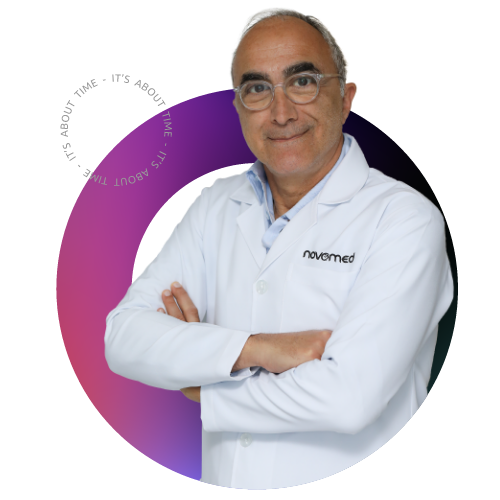What is infectious colitis?
Infectious colitis is the swelling and irritation of the colon. It is caused by the overgrowth of C. difficile bacterium and requires hospitalization and treatment with antibiotics.
What are the symptoms of infectious colitis?
Some people with C. difficile bacteria in their gut never get sick, although – rarely – they continue to spread the infection. Signs and symptoms usually appear within five to ten days after starting a course of antibiotics, but they may occur on the first day or even within two months.
Mild to moderate infection
The most common signs and symptoms of mild and moderate infectious colitis are:
- Recurring Diarrhea three or more times a day for two or more days
- Mild stomach cramps and tenderness
- Mild fever
- Nausea and vomiting
- Severe infection
People with severe infectious colitis tend to become dehydrated and may need to be hospitalized. Severe infectious colitis can sometimes form patches of tissue that can bleed or ooze pus. Signs and symptoms of severe infectious colitis are:
- Recurring diarrhea more than ten times a day
- Severe abdominal pain and cramping
- Rapid heart rate
- Fever
- Blood or pus in your stool
- Nausea
- Appetite loss
- Weight loss
- Kidney failure
- Overproduction of white blood cells
What is the cause of infectious colitis?
Clostridium difficile bacteria can be present in the soil, air, water, human and animal waste, and food products such as processed meat.
C. difficile spores are transmitted through the feces and spread to food, surfaces, and objects when infected people do not wash their hands well. These spores can survive for weeks or months. If you touch anything contaminated with C. difficile spores, you could accidentally ingest it.
If swallowed, Clostridium difficile can produce toxins that attack the lining of the intestine. The toxins destroy the cells and produce macules (plaques) from inflammatory cells, dissolving cellular remnants within the colon, and cause liquid diarrhea.
How is infectious colitis diagnosed?
Doctors usually suspect C. difficile infection in patients who have diarrhea and who are at risk of infection. In such cases, the doctor will likely order one or more of the following tests.
Stool tests. Toxins produced by Clostridium difficile can be detected in a stool sample. There are several main types of laboratory testing, and they include polymerase chain reaction, GDH/EIA, enzyme immunoassay, and cell cytotoxicity assay.
Colon examination. This test (flexible colonoscopy or sigmoidoscopy) involves inserting a flexible tube with a small camera at its tip into the colon to look for areas of inflammation and pseudo-membranes.
How is infectious colitis treated?
The first step in treating infectious colitis is to stop taking antibiotics that have triggered the infection. Depending on the severity of your infection, treatment may include the following:
- Antibiotics. Ironically, the standard treatment for C. difficile is another antibiotic. These antibiotics prevent Clostridium difficile bacteria from growing, which treats diarrhea and other complications.
- Surgery. For people who have severe pain, organ failure, toxic enlargement of the colon, or inflammation of the lining of the abdominal wall, surgery to remove the affected part of the colon may be the only option.
- Fecal microbiota transplant (FMT). The healthy gut bacteria are restored by placing the stool of another person (donor) into the patient’s colon through a colonoscope or nasogastric tube. Donors are examined to ensure they are free of any medical conditions, blood is tested to ensure that it is clear of infection, and the stool is carefully examined to ensure that there are no parasites, viruses, and other infectious bacteria before it is used in a microbiota.


























